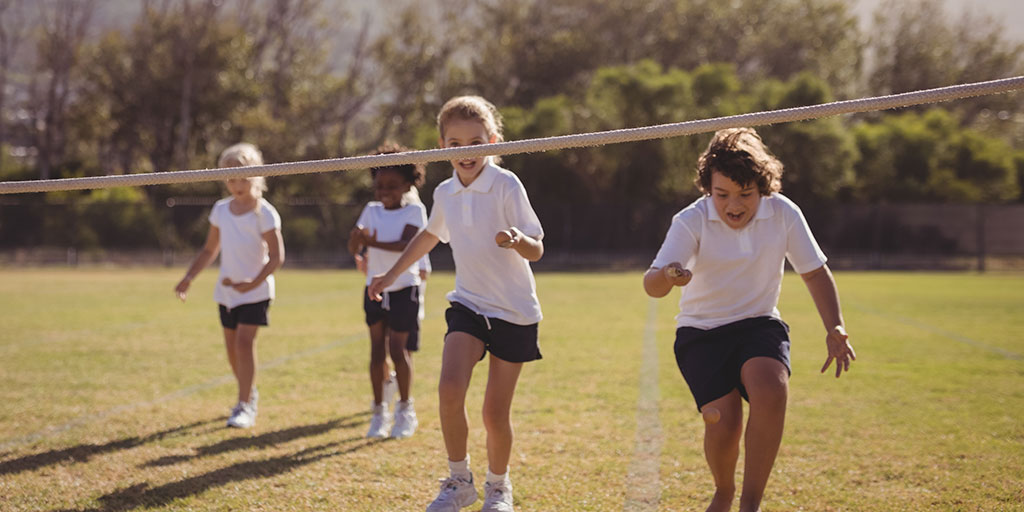Teaching with or around a competition can be fraught with pitfalls. Taught without the intent to engage and develop, you risk forming negative experiences for pupils and disengagement with sport and fitness altogether.
Intra-school competition is a great way to develop a positive attitude towards competition, whilst pupils are among their peers. Using your schools’ organisational structure such as form and year groups, or key stages and houses, you can set the parameters for intra-competition in your school. Here are five simple ways that you can foster a positive environment for intra-competition with intent at your school.
1. Competitions should be regular and easily followed
Making competitions a fixture of school life, with every half term or yearly sports days and festivals devoted to sport will make intra-competition a second nature at your school. You can use various formats to separate competing groups. As the year progresses, promote the results in school newsletters to parents and guardians and widely in assemblies or school bulletins. The results are therefore easy to follow and can be used across various parts of the curriculum.
Why not use an Active Maths formula to award points for the most right answers and most improved across your school groups?
2. Widen the measurements for success
All pupils don’t naturally adapt to exercise and fitness. It’s important however that a badly designed intra-competitive program doesn’t provide their first negative impression of competitive sport. It’s very difficult to change those in their formative years and could produce a negative impression of fitness into their later years.
Focus on the process rather than the outcome. They are learning and developing skills so it’s more about their motivation and confidence than physical prowess. You can do this by encouraging pupils to set personal goals for themselves. Pursue the use of personal bests, which allow students to work towards goals that are best for them. Reduce the amount of time sitting out by creating quick-fire rounds where everyone has a chance to be involved, in the middle of activities to get all pupils moving.
Taking part, teamwork, and sportsmanship are all examples of where success is measured creatively.
3. Widen the environment for taking part
Expanding the remit for taking part allows your school to come up with creative ways for pupils to be a part of sports days. You can expand a school council or create a program for pupils to work as referees or set up crew. Students who referee for example will learn integrity but also conflict resolution. It’s important to assign these roles randomly however as well as having volunteers. It shouldn’t become a symbol of low ability or a refuge for students who don’t feel physically competent.
If you focus on the benefits of sport from the perspective of as many motivations as possible, from representing their class; to setting up goals; or watching competitors, this becomes an experiential way to learn elements of competition in their own way.
4. Engage pupils with new elements of competition
Adding new features to make rules for sports more interesting can further engage students. For example, adding music to a game, which means that all points scored in that time are worth double, will draw pupils in. Not only this, but it’s also a great way to instil active maths and provide an opportunity to increase activity levels in this period of time.
Building on the foundation of technology gained through the pandemic will provide students with the ability to track their progress. There’s no need to think of sport now as something that happens altogether. Now pupils can video their progress with a sports challenge and upload their results onto a school intranet.
5. Celebrate your year of sport
A yearly celebration of sport with members of your community and VIPs in attendance can be a great booster for engagement in sport. You can use this time as an opportunity to give awards, not just for those who win but for upholding the skills or values important to your school.
Bring in groups and clubs from across the school with performative elements to show what they’ve been doing on these celebration days. Choose from any one of these groups to add a touch of glamour and inclusion to the event.










